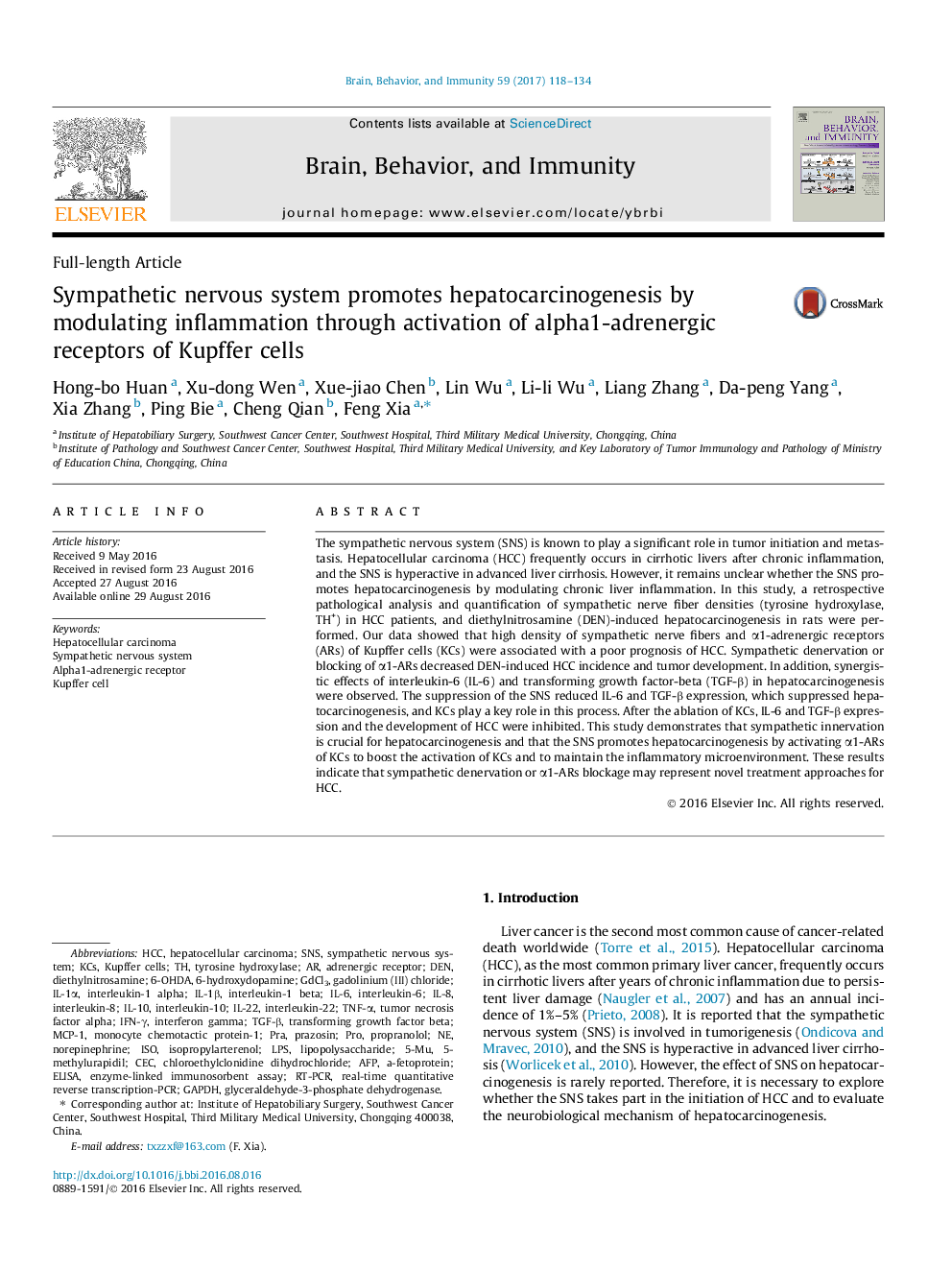| Article ID | Journal | Published Year | Pages | File Type |
|---|---|---|---|---|
| 5040933 | Brain, Behavior, and Immunity | 2017 | 17 Pages |
â¢The sympathetic nervous system (SNS) infiltrates the liver and promotes hepatocarcinogenesis.â¢A high density of sympathetic nerve fibers is associated with poor prognosis of hepatocellular carcinoma (HCC) patients.â¢The SNS promotes the activation of Kupffer cells (KCs) via α1-adrenergic receptors in hepatocarcinogenesis.â¢The SNS promotes hepatocarcinogenesis by modulating the activity of KCs and liver inflammation.
The sympathetic nervous system (SNS) is known to play a significant role in tumor initiation and metastasis. Hepatocellular carcinoma (HCC) frequently occurs in cirrhotic livers after chronic inflammation, and the SNS is hyperactive in advanced liver cirrhosis. However, it remains unclear whether the SNS promotes hepatocarcinogenesis by modulating chronic liver inflammation. In this study, a retrospective pathological analysis and quantification of sympathetic nerve fiber densities (tyrosine hydroxylase, TH+) in HCC patients, and diethylnitrosamine (DEN)-induced hepatocarcinogenesis in rats were performed. Our data showed that high density of sympathetic nerve fibers and α1-adrenergic receptors (ARs) of Kupffer cells (KCs) were associated with a poor prognosis of HCC. Sympathetic denervation or blocking of α1-ARs decreased DEN-induced HCC incidence and tumor development. In addition, synergistic effects of interleukin-6 (IL-6) and transforming growth factor-beta (TGF-β) in hepatocarcinogenesis were observed. The suppression of the SNS reduced IL-6 and TGF-β expression, which suppressed hepatocarcinogenesis, and KCs play a key role in this process. After the ablation of KCs, IL-6 and TGF-β expression and the development of HCC were inhibited. This study demonstrates that sympathetic innervation is crucial for hepatocarcinogenesis and that the SNS promotes hepatocarcinogenesis by activating α1-ARs of KCs to boost the activation of KCs and to maintain the inflammatory microenvironment. These results indicate that sympathetic denervation or α1-ARs blockage may represent novel treatment approaches for HCC.
